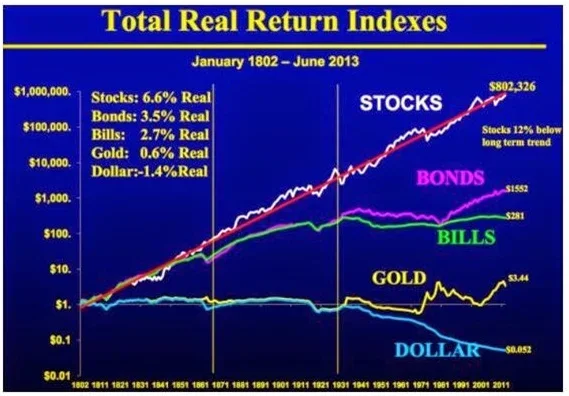Clearly there are enough examples to disprove your opinion but I have a feeling you won't be convinced...
Damn, I was enjoying your comment until you decided to make it stingy

I don't know why you think I'd be so stubborn as to not change my mind on this issue. Matter of fact, I really hope to change my mind if I'm wrong, it's a topic about money and I really don't want to hold a false point of view. I also kinda hope I wrong, because then I would be able to look at stocks with more trust and that would expand my potential investment portfolio.
Your reasoning about the stocks/profit/etc is factual, but I don't see how it contradicts the Ponzi perspective. We might be disagreeing on semantics, I am not sure.
'A Ponzi scheme (/ ˈ p ɒ n z i /, Italian: ) is a form of fraud that lures investors and pays profits to earlier investors with funds from more recent investors. The scheme leads victims to believe that profits are coming from legitimate business activity (e.g., product sales or successful investments), and they remain unaware that other investors are the source of funds.'
Yes I agree that a company that does not pay dividends can reinvest more money and become more successful. Yes I agree that investors might prefer not to receive dividends precisely because they want to company to grow. However,
the only way they will make money is if somebody else buys the shares from them at the higher price.
Take
real estate investment for instance. Even assuming the price will remain still, the house can generate rental income or at least provide shelter. It has value.
Bitcoin - even if the price remains the same, I would still hold it just because I don't trust banks, there is value in its freedom-oriented implementation.
A stock that pays dividends whos value remains the same is still an investment that can pay me regularly.
A non-dividend stock whose value stays the same is meaningless (for the average investor who doesn't hold a position in the company). It has to maintain its pyramid inflow of investors in order to generate a profit. It would hold some degree of value if there was a guarantee of dividend paying at some point in the future(when the growth slows down, for instance), but that is not usually the case.
The only thing that would save it from the 'Ponzi scheme' label is its transparency (sort of). The companies don't lie about profit sharing or other things. Warren Buffet is not rubbing his hands with an evil laughter thinking how good of a scam he was able to create with his stocks (at least I hope he isn't).
The pyramidal aspect of the stock market is so foggy in the public's eyes that it's not even being properly discussed. It might even be silently accepted on a subconscious level by the gambling addicted masses who simply like to bet on the growth of a company, mutually accepting the structure by the default, in order to keep themselves busy with the rush of making a profit, sugarcoated by the business-like intellectualism that cannot be found a normal casino.
And there is intellectual merit in picking up the right stocks, even with the Ponzi element involved.



